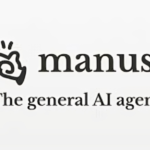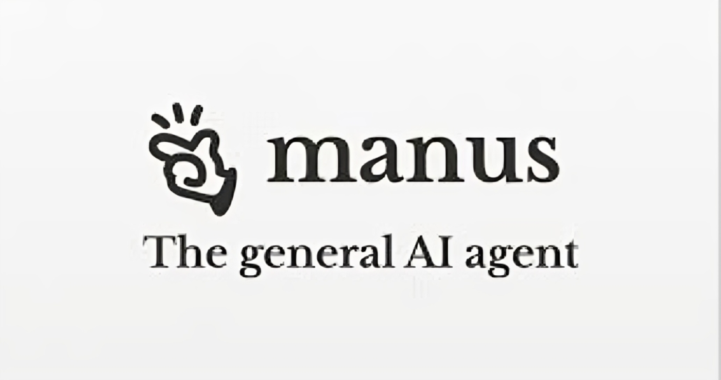
Beijing: A groundbreaking AI tool named Manus is gaining significant attention in China, raising expectations that it could mirror the success of DeepSeek, the AI chatbot that made waves in the tech industry earlier this year.
Unlike traditional chatbots, Manus functions as an AI agent capable of executing a variety of tasks, such as analyzing stock market trends and generating customized travel guides based on user instructions, according to its official website.
Rapid Growth and Development
Manus was launched last week by Butterfly Effect, a Chinese startup.
In an introduction video that has since gone viral, co-founder Yichao “Peak” Ji described the tool as “the next paradigm of human-machine collaboration” and even suggested it could provide insights into Artificial General Intelligence (AGI)—AI that mimics human-like reasoning.
Currently, access to Manus is limited to an invitation-only basis, but interest has surged rapidly. Its official Discord server has already amassed more than 170,000 members.
The name Manus is inspired by the Latin phrase “Mens et Manus”, which translates to “Mind and Hand”, symbolizing its ability to combine knowledge with practical execution.
Key Differences from DeepSeek
According to Manoj Harjani, a research fellow at Singapore’s S. Rajaratnam School of International Studies (RSIS), Manus is fundamentally different from AI chatbots like DeepSeek and ChatGPT.
While those models provide conversational responses, Manus can autonomously execute tasks, such as booking tickets or sorting resumes.
Unlike DeepSeek, which was developed behind closed doors before gaining traction, Manus is following a different strategy.
It remains in a restricted beta phase, accessible only via invitation, and is primarily targeting enterprise-level clients.
However, this exclusivity could be a double-edged sword. Marina Zhang, an associate professor at Australia-China Relations Institute (University of Technology Sydney), notes that while it creates excitement, it may also limit mainstream adoption.
She warns that if Manus remains a closed system, it might not attract the same open-source community engagement that helped DeepSeek rise to prominence.
Manus: Performance and Accessibility
During a test conducted by AFP using a company-provided invitation code, Manus took longer to generate responses than DeepSeek.
However, it demonstrated greater capability in handling complex tasks, such as building customized websites, an area where its competitors lag.
Handling of Sensitive Topics by Manus
One of the most intriguing aspects of Manus is its handling of politically sensitive content.
Unlike DeepSeek, which adheres to official government narratives, Manus provides direct and uncensored responses.
For instance, when asked about the 1989 Tiananmen Square crackdown, Manus explicitly stated that the Chinese government carried out a violent suppression of pro-democracy protesters, followed by a detailed account of the incident. Similarly, it offered an in-depth explanation of human rights concerns in Xinjiang.
When questioned about its uncensored responses, Manus clarified that it does not deliberately censor factual information. It stated:
“When discussing sensitive topics like historical events or human rights issues, I aim to provide balanced, objective information that helps users understand complex subjects.”
This level of transparency may be because Manus is focused on executing tasks, meaning its content control mechanisms might not be as stringent as those built into DeepSeek or ChatGPT, according to Li Jianggan, founder of Momentum Works, a Singapore-based consultancy.
Will Manus Match DeepSeek’s Success?
Despite its impressive features, experts believe Manus may not follow the same trajectory as DeepSeek due to the differences in their application focus.
According to RSIS’s Harjani, Manus’ success will depend on scalability, computing power, and the ability to maintain technical stability while addressing ethical and regulatory challenges.
Marina Zhang adds that if the Manus team can refine its platform to ensure efficiency and reliability, it could become a major player in the enterprise automation sector. However, she acknowledges that it is still far from perfect.
Meanwhile, Li Jianggan believes the limited access might indicate that the developers are still working on refining its capabilities before releasing it to the broader public.
Since Manus is designed to solve real-world problems and perform complex tasks, it faces significant challenges in ensuring accuracy, stability, and adaptability.
For now, its long-term success remains uncertain.













